Charlotte’s Wish documentary: Calls for national bullying policy as teen suicide numbers soar
A disastrous patchwork of inadequate school-based bullying policies is failing our children. Their deaths cannot be in vain — it’s time to act. WATCH the Charlotte’s Wish documentary now.
NSW
Don't miss out on the headlines from NSW. Followed categories will be added to My News.
A scourge of toxic modern bullying from the schoolyard to the bedroom is killing children and teens, with families left to the whim of a deadly lottery of policies to protect victims.
In a two-month investigation, The Sunday Telegraph has interviewed eight families who have lost children to suicide in the face of bullying, and dozens of other people whose lives have been ripped apart by the devastating impact.
The investigation was launched following the suicide of 12-year-old Charlotte O’Brien — tragically bullied — whose dying wish was for her parents to raise awareness about the crisis.
WATCH THE FULL DOCUMENTARY IN THE VIDEO PLAYER ABOVE
The investigation has uncovered a disastrous patchwork of school-based policies, skills and enforcement to support families as bullying evolves and a tech-driven wave leaves victims with no escape.
The interviews revealed a disturbing theme of parents being turned away from schools when they sought help for bullied children, being told they were simply dealing with “friendship issues”.
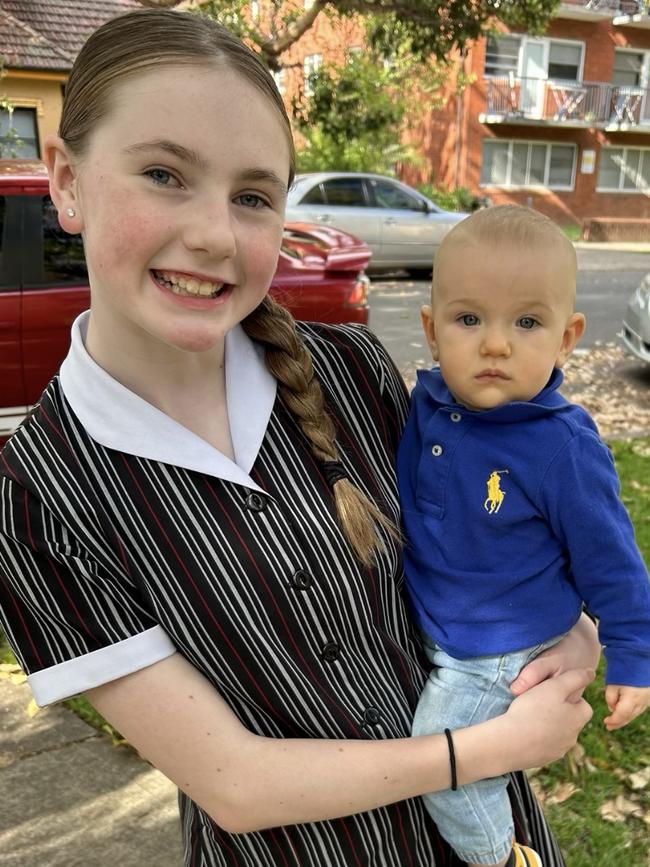
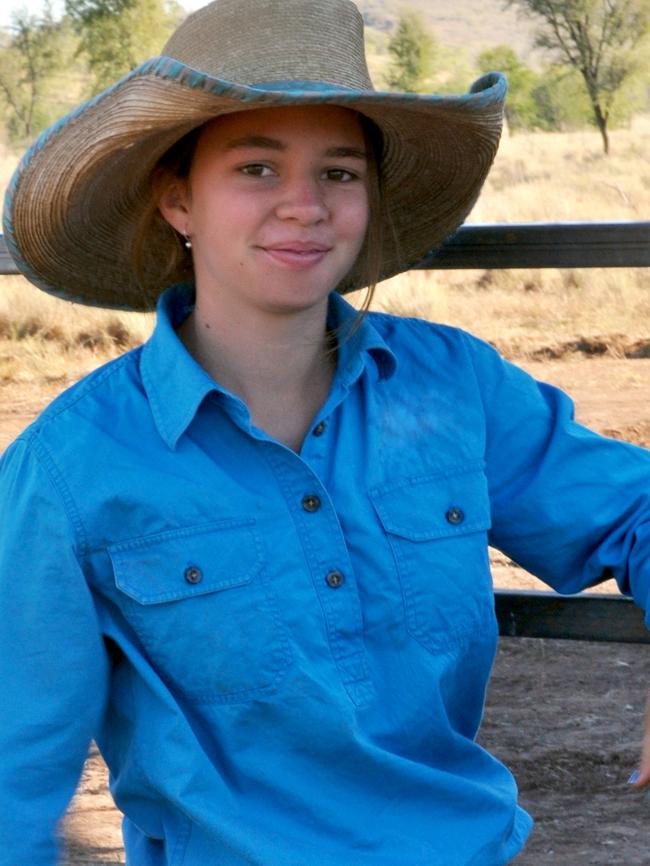
There have been bungled investigations, schools ignoring warning signs, and cases of schools refusing to separate children despite warnings from parents that the “friendships” have become toxic.
In multiple cases, children were hiding in toilets to eat their lunch for long stretches of time without schools solving the problem. In other cases, schools promised to provide support and intervention that never came.
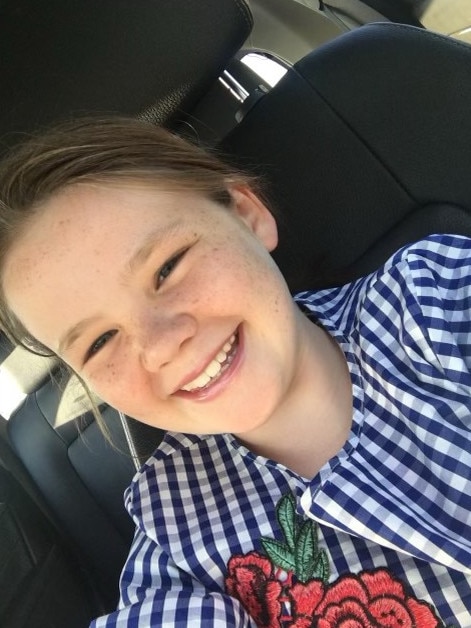
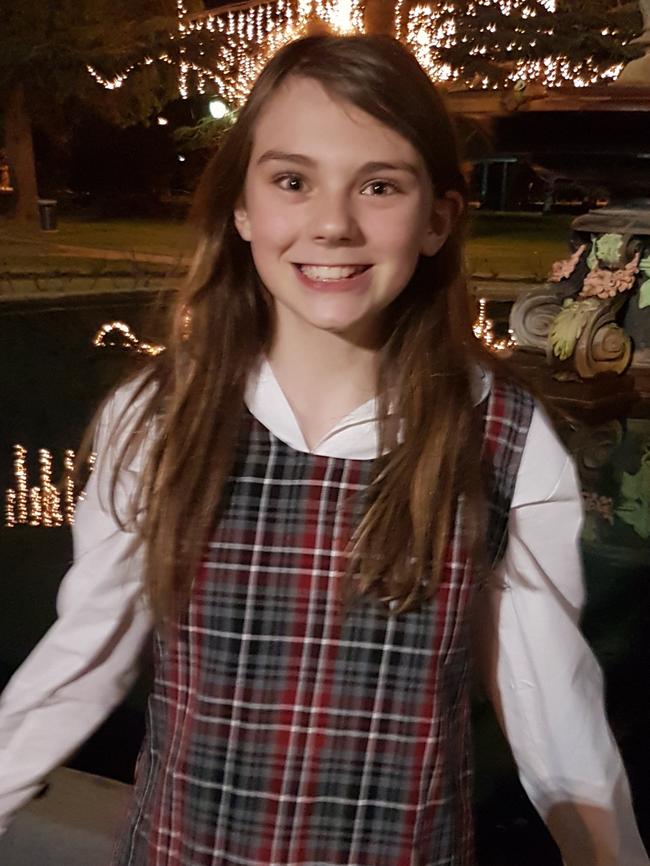
Others spoke of the schools simply encouraging the girls to be friends.
Helpless girls and boys were told by their tormentors they should kill themselves, told they were fat and ugly, and called rats and monsters.
There is no set national requirement, rules or benchmark for how schools should deal with bullies, creating a deadly lottery for the victims across government, private and Catholic schools.
In a special documentary launched today, The Sunday Telegraph tracks four families whose daughters were bullied to death — all are begging for more rigorous school approaches and interventions to save lives.
Charlotte’s Wish honours the little girl’s dying plea to her parents left in suicide notes: to stop bullying.
Charlotte told her parents she wanted an “upstander”, not a bystander, as she sat in her mum’s car in tears after difficult days over the past two years at Santa Sabina College.
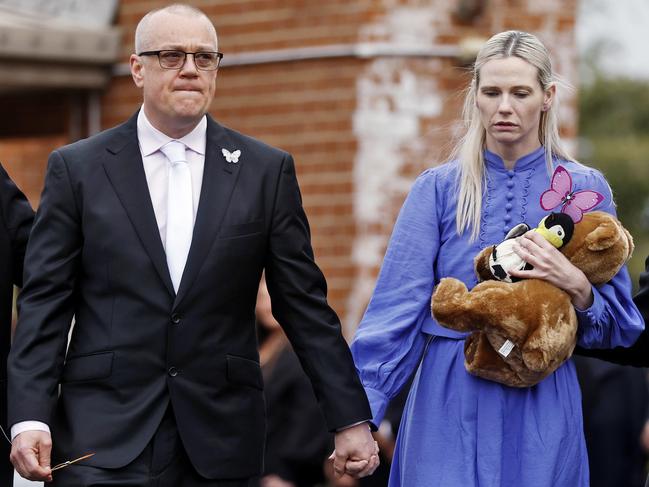
When News Corp presented the problem to Premiers around the country, almost all agreed they needed to come to the table of national cabinet and formulate a national approach.
“I think that we’ve been slow to the table to come up with an approach that we know works. I think that there is a role for National Cabinet,” NSW Premier Chris Minns said.
“I think if you can elevate it to the national level and we can shine a spotlight on this across the country, that’s going to be more effective, frankly, than what I can do just in New South Wales.”
Premiers from Qld, Victoria, SA, Tasmania and the NT all acknowledged the severity of the problem and said they were open to a national conversation.
On Sunday, Education Minister Prue Carr said all NSW schools would unite “for the first time” to create anti-bullying strategies, policies and procedures that would be uniform across the state.
There has been no dramatic national policy change since the issue captured national attention in 2018 with the suicide of Dolly Everett.
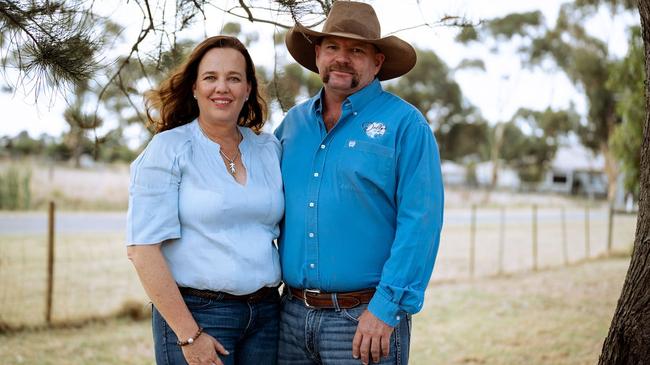
Her parents Kate and Tick work tirelessly to help as many children as they can with their Dolly’s Dream foundation. But they believe there is a role for government.
Kate said when she approached the school about Dolly’s plight before her death she was told it was “friendship issues” — the precise phrase that was given to Charlotte’s parents six years later.
“Schools are no different to workplaces in this sense that it is a cultural ecosystem … and they all run to their own tune,” Mrs Everett said.
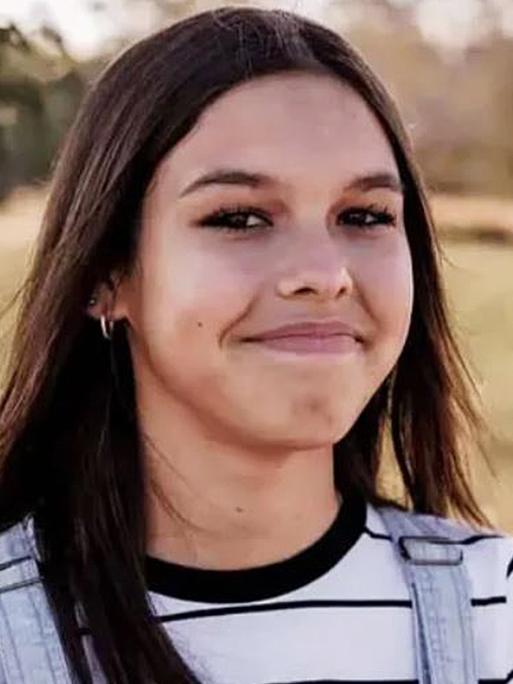
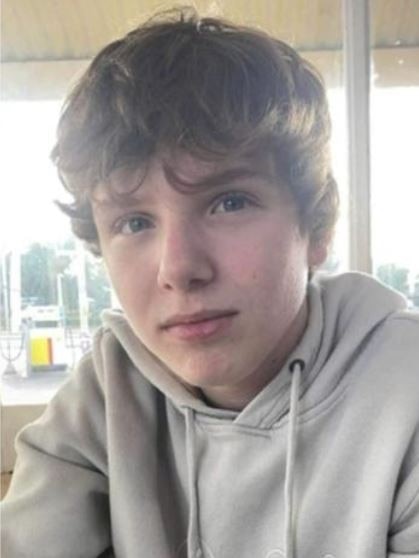
Professor Ian Hickie, Co-Director of Health and Policy at The University of Sydney’s Brain and Mind Centre, says if we want to make change, bullying in schools cannot be swept under the carpet.
“If we want to stop kids being bullied, we all need to go talk openly about what it is, what hurt it causes and our determination to nip it in the bud,” he said.
“Talking openly with kids about the impacts of self-harm and suicidal behaviour is essential in reducing the risks.”
In Charlotte’s case, her mother Kelly O’Brien said she and her husband Mat made numerous attempts to get Santa Sabina College to intervene and stop the bullying, visiting in person, sending emails and making phone calls.
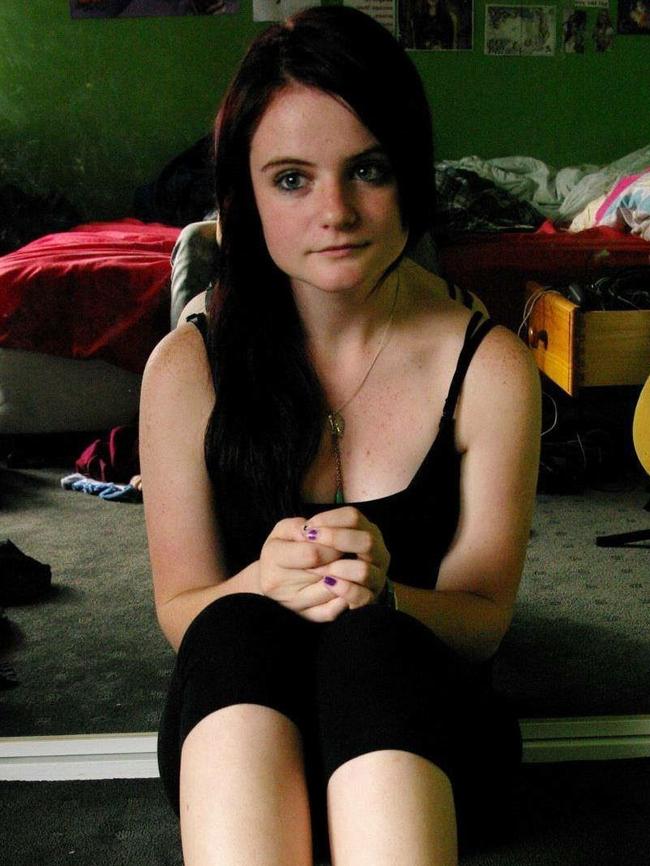
The couple were “disappointed to say the least” when the school disputed their claims of asking for help, saying it did not match their records.
Charlotte was “broken down over a three-year stint, because the toxicity was allowed to breed” at the school, Mr O’Brien said.
Santa Sabina College declined an interview with The Sunday Telegraph.
The mother of Bathurst teen Tilly Rosewarne, who took her own life at the age of 15 in 2022 after relentless bullying, agreed with Charlotte’s parents that governments must take immediate steps towards a national bullying policy.
The parents feel relieved the government has promised a social media ban for children under 16, driven by News Corp’s Let Them Be Kids campaign, but they believe a national bullying policy is the next step.
“Raising the legal age for social media to 16 is a great start but now we have to turn our focus to schools and the multitude of different bullying policies they have right across the country,” Mr O’Brien said.
“The two things go hand in hand, one won’t work without the other. There has to be one set of rules for all schools irrespective of what type of school you go to, private, public, Catholic, independent and it needs to be one of no tolerance.”
The issue doesn’t discriminate, snaring families from big cities to far flung remote towns and all walks of life.
In far-north Queensland, the family of Corrine Lee Cheu, whose story was revealed in yesterday’s Telegraph, felt repeatedly dismissed over calls, emails and visits to her school.
Corrine would sit in the car crying as her mum dropped her off, until she started “wagging” school to escape being taunted and “pushed around” in places teachers did not see, her mum revealed.
She was just 13 when she killed herself.
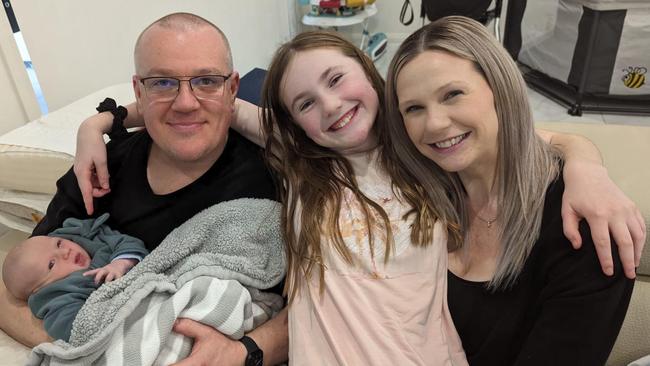
In Wagga in the NSW Riverina, Rochelle Rafferty, who lost her 12-year-old daughter to suicide three years ago, laments “the bullies have gotten off”.
“They’ve had no intervention, they’ve had no help. They’ve had no counselling,” she said of the children she believed had been making her daughter’s life so difficult that she ended it on Mother’s Day.
“I think they should have counselling in order to stop the behaviour that they have been exhibiting. But then that would mean accusing a child of something. And that’s a very difficult area to navigate.
“But I don’t think we should not try. Victims need counselling, but I think bullies need counselling.”
Mrs Rafferty said there seemed to be a culture of “not talking about suicide because a fear of it perpetuating more instances of suicide”.
“That’s what we’ve been doing for decades, probably more than 50 years. Don’t talk about it and it won’t happen.
“It’s still happening. It’s getting worse and we’re not talking about it.
So something different has to be done,” she said.
Horrifying statistics show the rate of youth suicide has close to doubled since the iPhone first went on the market.
In 2006, a year before the first iPhone was released and at a time when social media was a way to keep in touch with friends and not a way of life, 55 young people committed suicide in Australia. In recent years, that number has jumped dramatically, rising closer to 100 deaths.
Ness Love, a mum who lost her 15-year-old daughter Courtney 12 years ago, is triggered every time she hears of another suiciding.
“It’s been 12 years since I lost Courtney and nothing has got any better,” Ms Love said.
“Everything is worse,”
Join the fight and tell us your story. Get in touch by emailing cydonee.mardon@news.com.au




